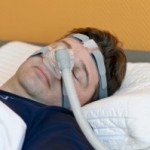 Insomnia, parasomnia and obstructive sleep apnea (OSA) have been found to increase the risk of cancer. It has long been known that insomnia, parasomnia and sleep apnea are associated with many other ailments, but little research has associated these sleep conditions with the risk of cancer.
Insomnia, parasomnia and obstructive sleep apnea (OSA) have been found to increase the risk of cancer. It has long been known that insomnia, parasomnia and sleep apnea are associated with many other ailments, but little research has associated these sleep conditions with the risk of cancer.
Researchers aimed to explore the relationship between sleep problems and the risk of cancer. They used data from two million Taiwanese people to assess the relationship.
Advertisement
Study patients were traced backward in order to determine their risk for sleep conditions and were divided into insomnia, parasomnia and sleep apnea groups. The selected patients did not have cancer prior to the study and were paired with controls based on the same age, gender and index year.
The link between insomnia and cancer
 Insomnia, as defined by the DSM fourth edition, is a condition that impairs a person’s ability to fall or stay asleep. Insomnia has been linked with higher incidences of breast cancer and colorectal adenomas, a precursor to colon cancer. Sleep disturbances have also been associated with lung cancer and psychological distress, revealing that sleep disorders are associated with a higher risk of cancer.
Insomnia, as defined by the DSM fourth edition, is a condition that impairs a person’s ability to fall or stay asleep. Insomnia has been linked with higher incidences of breast cancer and colorectal adenomas, a precursor to colon cancer. Sleep disturbances have also been associated with lung cancer and psychological distress, revealing that sleep disorders are associated with a higher risk of cancer.
Parasomnia is a condition where a person has undesirable physical events or experiences when attempting to fall asleep. Obstructive sleep apnea is when a person frequently stops breathing (momentarily) throughout their sleep, causing them to wake up numerous times a night. Both of these conditions have also been linked with brain tumors, diabetes and obesity.
For the study researchers selected two million individuals from the National Health Insurance Research Database, which collects data from the Taiwan National Health Insurance. Participants were excluded from the study if they had a case of cancer or a sleep disorder prior to 1999.
The research uncovered a significant increase in breast cancer in those with insomnia, parasomnia and sleep apnea. Furthermore, those with parasomnia were at higher risk for developing oral cancer. Nasal cancer and prostate cancer were also shown to be higher in those with sleep apnea, compared to those without the sleep disorder.
The researchers concluded that their research reveals an association between cancer and sleep disorders. They stressed the importance of proper sleep and achieving good sleep quality in order to reduce the risk of cancer. Therefore, if you have troubles sleeping, it’s imperative that you speak with your doctor in order to fix such problems.
Sleep deprivation and cancer risk
Lack of sleep continues to be linked with negative health effects. Aside from robbing you of the necessary energy you need to get through your day, sleep deprivation has been linked with an increased risk of cardiovascular disease, poor memory and diabetes.
Within America, at least one in every 10 people suffers from sleep deprivation, which contributes to illness and aging. But why does sleep deprivation lead to cancer? Well, it has been said that sleep deprivation increases inflammation in the body, which disrupts normal immune functions. This disruption not only hinders the body’s own ability to fight off illness, but it may also promote cancer.
Furthermore, when we sleep our body naturally produces melatonin. Melatonin not only helps us sleep, but has antioxidant effects to prevent cellular damage. Without proper sleep we cannot produce enough melatonin to help our cells, thus making them prone to damage.
Below are the types of cancer associated with sleep deprivation.
- Prostate cancer – men who suffer from insomnia have been found to be at higher risk for prostate cancer.
- Colon cancer – individuals who receive less than six hours of sleep a night have been shown to develop colon cancer more so than those who get adequate sleep.
- Breast cancer – after studying those with breast cancer, researchers found those with poor sleep had breast cancer two years prior to diagnosis. Additionally, postmenopausal women who experience poor sleep are at higher risk of recurring breast cancer.
How to get a good night sleep
As you can see, sleep is important, especially when it comes to lowering your risk of cancer. Here are some tips in order to improve your sleep and reduce your risk of cancer.
 Try and stick with a sleep schedule – go to bed and wake up around the same time.
Try and stick with a sleep schedule – go to bed and wake up around the same time.- Don’t take naps.
- Only use your bed for sleep – don’t bring food to bed, don’t watch TV, and don’t try to get late-night work done.
- Avoid stimulants like caffeine or nicotine prior to bed.
- Don’t exercise prior to bed.
- Only sleep when sleepy.
- Develop a sleep routine, such as listening to soft music, meditating or shutting the lights off.
- If you can’t sleep within 20 minutes of going to bed, get up and do a boring task until you feel sleepy.
- Treat any underlying medical conditions – sleep apnea, diabetes, etc.
Related Reading:
Is your sleep robbing you of your hearing?
Hearing loss can be caused by noise or through aging – this much we know. But research suggests that a serious sleep condition could also be robbing you of your precious hearing. Sleep apnea is a condition that causes a person to stop breathing numerous times throughout the night. It has been tied to conditions such as hypertension, obesity and even diabetes. Continue reading…
Advertisement
Lack of sleep contributes to diabetes: Study
Researchers from the University of Colorado Anschutz Medical Campus and the University of Colorado Boulder have found a link between a lack of sleep and diabetes. Lack of sleep has also been associated with a rise in obesity, metabolic syndromes, mood disorders, cognitive impairment and accidents. Continue reading…
Sources:
http://www.jcancer.org
http://www.cancercenter.com/community/newsletter/article/researchers-are-studying-the-link-between-sleep-and-cancer
